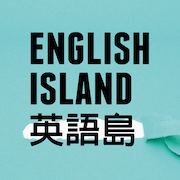
【英語長文章】沒有草坪的公園算公園嗎?
為什麼公園一定要有草坪?台灣人聽到這個問題覺得疑惑,但這位英國人理直氣壯,他說,走進沒有草坪的公園,就像進了沒有床的臥室…
I have spent all my life in cities. And all my life I have yearned for the countryside, for the great outdoors, just as an animal born in captivity sulks intuitively for its natural habitat. But just like that animal, I would be unable to survive when let out into the wild. I do not know the names of the trees (they are all in Latin, which does not help). I can't tell which berries and nuts are edible and which are deadly. I can't hunt or fish. I can barely even put up a tent. I love to read novels about man or mammal's struggles with nature, like Hemingway's 'The Old Man and the Sea' or London's 'The Call of the Wild,' but would hate to live in such novels. Nature is, as a general rule, terrifying. In Taiwan it is even more terrifying. On the few occasions on which I have ventured into the mountains near Taipei, I have sorely felt my lack of training in jungle warfare. There are too many deadly things out there: snakes, spiders, cliffs. When I was eighteen, I nearly perished after losing my way and my footing on a steep mountain in China. But that is another story. All you need to know is that I seldom leave the city, and when I feel a longing for greenery, I must go to a park.
I am a bit of an expert in parks. Other people know their grunge bands, their herbal medicine, their gluten free beers; I know my parks. I have been to hundreds of them, in tens of countries, on four continents. I think I could write a whole book about parks: with people and plants and pictures. But I haven't had any lucrative offers from major publishing houses, so I must write this short article instead.
Of course, there is no space to go into depth. I must, in the words of the poet Su Dongpo 厚積薄發, i.e. having accumulated much, issue little – something I never seem able to do in the realm of my personal finances. To narrow the focus, I will focus on Taiwanese parks and what makes them so strange in the eyes of a foreigner.
台灣公園的設計哲學
When an English city planner designs his park, he thinks principally of grass and trees, a pond if he's feeling generous, a ditch if he's not. When his Taiwanese counterpart is addressing the same task, however, he sees neither grass nor trees, neither pond nor ditch. He sees, low and behold, a philosophical system. In other words, he gets a little carried away.
This is all a bit abstract. To show you what I mean, I'm going to describe one of the parks that I know the best in Taiwan. It's a small one, more of a square really, on Guling street, where I used to live as a graduate student. I'm there now in fact, sitting on the chairs in front of an OK convenience store, writing this. Yes you see me. Good evening. Of course it may not be evening where you are, and you may never have been to Taipei. (Is there anything stranger than meeting in a piece of writing? We do it all the time.) But let's take a little walk around the park.
缺乏草坪的公園令人不安
The first thing you'll notice is that there is no grass here. Even larger parks, like Daan Forest Park, have very few expanses of God's green carpet. (I've always thought, by way of a small aside, that if grass were red, like the carpets at movie premieres or royal functions, we would all have the benefit of feeling like glamorous VIPs much of the time. Then I realized that if we changed the color of red carpets to green, the same effect would be achieved, with no help from the heavens. Miracles are so easily arranged.) For an Englishman, visiting a park without a lawn is like being invited to sleep in a bedroom without a bed. He becomes confused as to where he should lie down. The Taiwanese answer seems to be the bench. But I have been also being scolded by local policemen for reclining on benches. In Taiwan, snoozing is forbidden in parks, not because it is slovenly, but because there are simply too many other things that one should be doing there.
台灣公園是運動中心、遊樂場、還是展覽館?
Let's revise the activities and objects of interest available in this very small park (measuring – I just paced it – 81 steps by 64 steps.) There is of course a playground, which used to come, as standard, with monkey bars, swings, slides, a roundabout, rocking horses, a small zip line, and various puzzles involving large cubes. This is now under renovation. There is a gymnasium of sorts with weights, bars and other tools of torture, also now under renovation. In the middle of the park, there is a small roller-skating rink (!), where old, mountainously permed ladies dance waltz each morning. There is a pavilion, where old, bald men smoke, drink and play cards each evening. There is a pond featuring a stone dragon and fish. There are many plants, which, though unremarkable in themselves, are remarkably labeled (in Latin), with accompanying botanical descriptions. One of them reads Tagetes Lemmoni; another, Ixora Williamsii (they must be making this up); yet another, Durata Erecta (I am not making this up). There are many animals, but all of them are dogs, and nearly all are strays. There are also a number of bizarre signs. One reads, in English, “If nature calls, please scoop it up.” The Chinese conveys the same message but refers explicitly to pet dogs. There are many statues. One is of an elephant, with an inscription that says, “Grandpa Lin Wang.” This is a reference to the famous elephant that carried palace treasures over to Taiwan during the civil war. The big-eared veteran retired to the Taipei zoo, where all schoolchildren were obliged to pay homage him. Grandpa Lin Wang died in 2003, at the age of eighty-four. This is a history lesson. There is a statue of the legendary monkey Sun Wukong, portraying the famous scene in 'Journey to the West' where he steals peaches from heaven. Peaches in Chinese are generally a euphemism for the intrigues of the boudoir. The statue seems therefore to be rich in innuendo. This is a lesson in literature. There is, on a different note, a sign with a moral message for children. I translate directly:
Do not be a petty thief.
Do not be a bandit.
Don't put people in a tough corner.
Keep a clean pair of hands
And a kind heart
And await the blessings of the Imperial Heavens.Your Caring Guardian
別做小偷
別做土匪
別陷人於不義
保持雙手乾淨
保有一顆善良的心
皇天自然會庇佑你關心你的管理員
I don't know what the Imperial Heavens 皇天mean, but it is all very odd. Finally, there is you and there is me, though I am now gone, and you perhaps have never even been here and never will. Do you see what strange place we inhabit? This is quite a philosophy.
本文收錄於英語島English Island 2017年1月號
訂閱雜誌
| 加入Line好友 |  |

 擔心生理健康,心理卻出問題?
擔心生理健康,心理卻出問題?